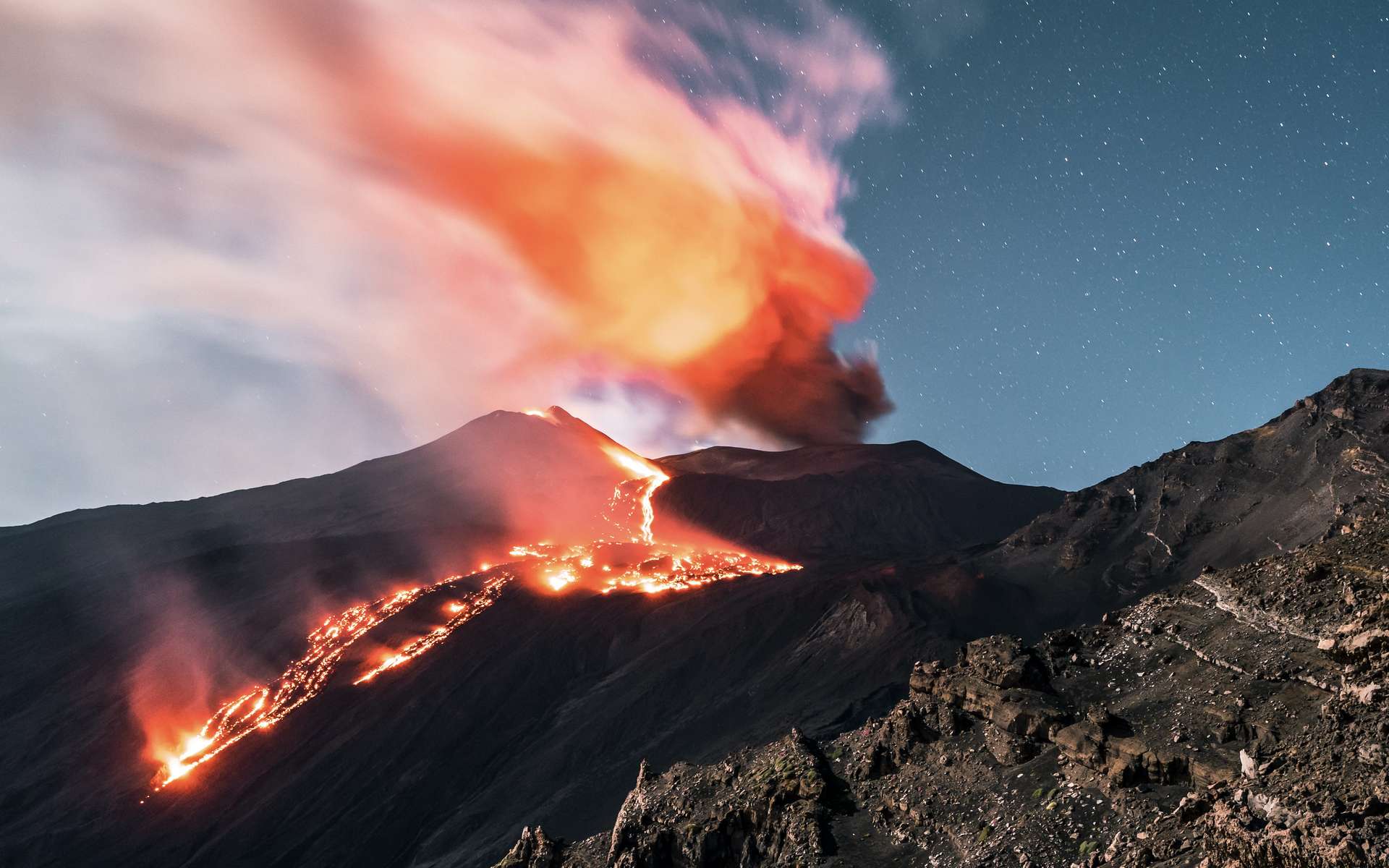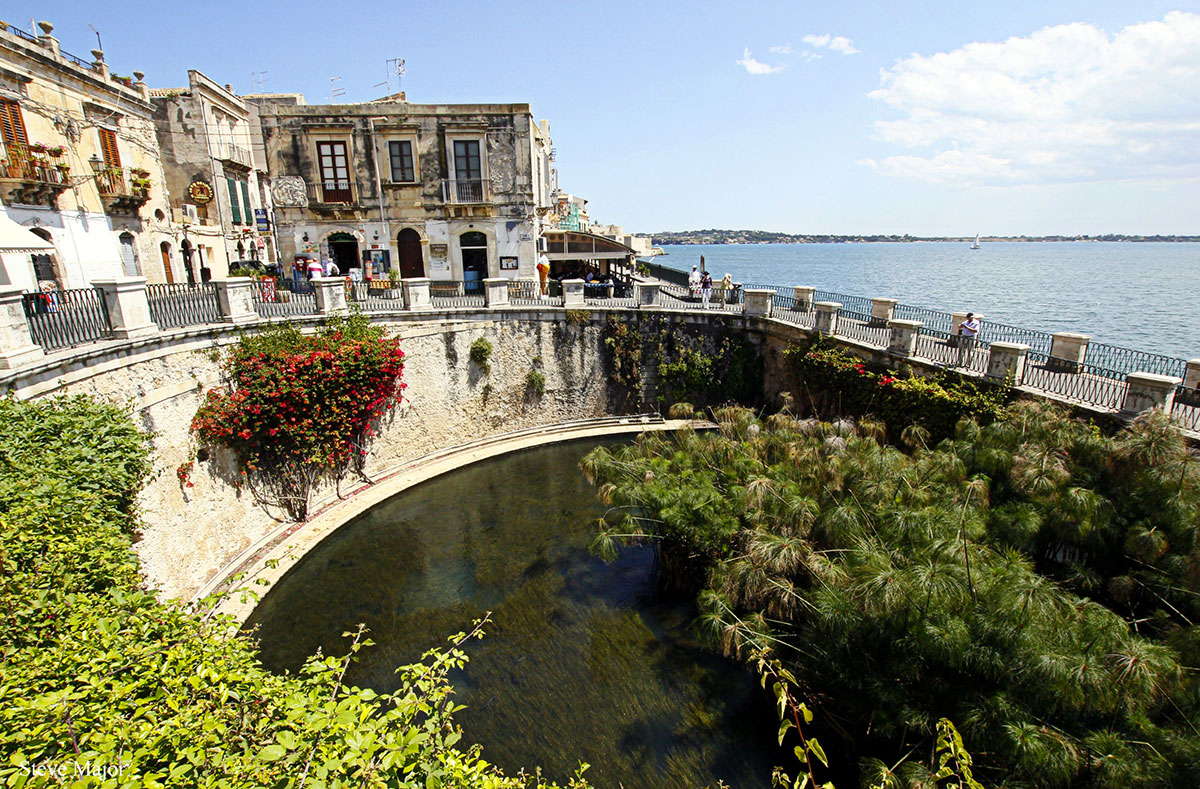FROM CATANIA

1) SIRACUSA AND ORTIGIA
7 hours, guide recommended
Syracuse has a rich Greek and Roman history.
Founded by the ancient Greeks, it preserves important remains such as the Greek Theatre where the famous 'Greek tragedies' are performed every year, the Roman Amphitheatre and the Ear of Dionysius.
The beautiful island of Ortigia, the ancient heart of the city, is famous for its narrow streets, the Duomo (built on a Greek temple) and charming little squares.
Syracuse has been declared a UNESCO World Heritage Site for its cultural and archaeological richness.
Want to know more?

2) ETNA E TAORMINA
8 hours, guide recommended
Etna is one of the most active and highest volcanoes in Europe, a UNESCO World Heritage Site since 2013 for its geological and cultural importance.
Its height varies constantly due to frequent eruptions that can be either explosive or effusive (with lava flows):
The volcano's landscape is very varied: there are craters, lava caves, forests and even areas with snow in winter.
After a nice stop (if requested) at a honey factory on the slopes of the volcano, you climb up to an altitude of 2,200 metres and once there, if you wish, you can reach the mouth of the central crater by cableway or Land Rover.
A truly unique experience!

TAORMINA
Want to know more?

3) SIRACUSA, NOTO AND RAGUSA
8 hours, guide necessary
Syracuse has a rich Greek and
Roman history.Founded by the ancient Greeks, it preserves
important remains such as the Greek Theatre where the famous 'Greek
tragedies' are performed every year, the Roman Amphitheatre and the
Ear of Dionysius.
The beautiful island of Ortigia, the ancient
heart of the city, is famous for its narrow streets, the Duomo (built
on a Greek temple) and charming little squares.
Siracusa has been declared aUNESCO World Heritage Site for its cultural and archaeological richness.

Noto is a beautiful town famous for its Baroque architecture.
It is, in fact, considered the 'capital of the Baroque'.
It was almost entirely rebuilt after an earthquake in 1690 and has a historic centre that is a true masterpiece of Baroque art.
Among its most iconic buildings are the majestic Cathedral of San Nicolò, the Palazzo Ducezio and the church of San Domenico.
Every spring, Noto hosts 'lnfiorata', a festival during which the streets are decorated with beautiful floral mosaics.

Ragusa is a fascinating city famous for its splendid Baroque architecture and unique views.
After an earthquake in 1690, the city was rebuilt in two parts: Ragusa Superiore, the more modern and located on a plateau, and Ragusa Ibla, the old and picturesque part, characterised by narrow alleys, churches and Baroque palaces.
Ragusa Ibla is home to remarkable monuments such as the Cathedral of San Giorgio and the Iblei Gardens.
It is also part of the UNESCO heritage along with other Baroque towns in the beautiful Val di Noto.
Want to know more?


4) PIAZZA ARMERINA, VILLADELCASALE
4 hours, guide recommended
The Villa Romana del Casale near Piazza Armerina is a magnificent late Roman residence that probably belonged to a high official of the empire.
The Villa is famous for its mosaics covering some 3,500 square metres.
The mosaics depict hunting and fishing scenes, games, mythological figures and daily activities, offering a window into the life of ancient Rome.
The well-preserved Villa has a complex system of rooms, baths and courtyards demonstrating the opulence and advanced engineering of the time.
Want to know more?
